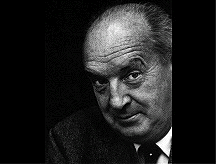
|
Crosslistings: REES 240 |

|
Crosslistings: REES 240 |
How does narrative form create meaning? Many of the best works of 19th-century Russian literature reflect upon the nature of storytelling and the capacity of stories to represent truth. In the 20th century, Russian literary theoreticians like Eikhenbaum, Bakhtin, and Lotman joined fiction writers in developing a powerful and useful critical vocabulary for describing and understanding narrative. Their work led them and writers of their generation into innovative experiments in short fiction. This course looks at the creative interplay between story writing and thinking about stories in modern Russian literature. We will read short stories and short novels by Pushkin, Gogol, Turgenev, Tolstoy, Dostoevsky, Chekhov, Zoshchenko, and Platonov. We will also read articles and selected chapters on theory by Iser, Hirsch, Chatman, Booth, Bakhtin, Lotman, Frye, and Jakobson.
COURSE FORMAT: Seminar
Level: UGRD Credit: 1 Gen Ed Area Dept: HA RUSS Grading Mode: Student Option
Prerequisites: NONE Links to Web Resources For This Course.
Last Updated on MAR-30-2006
Copyright Wesleyan University, Middletown, Connecticut, 06459